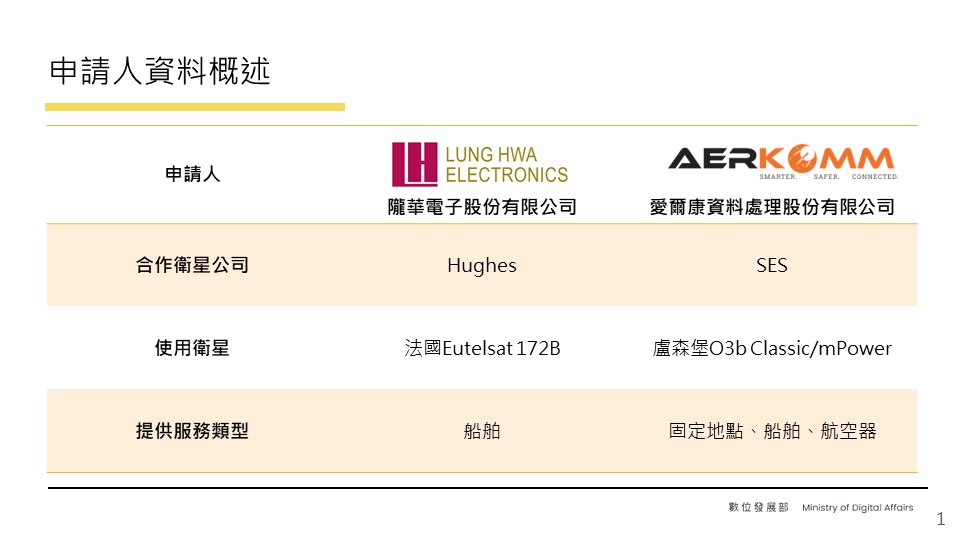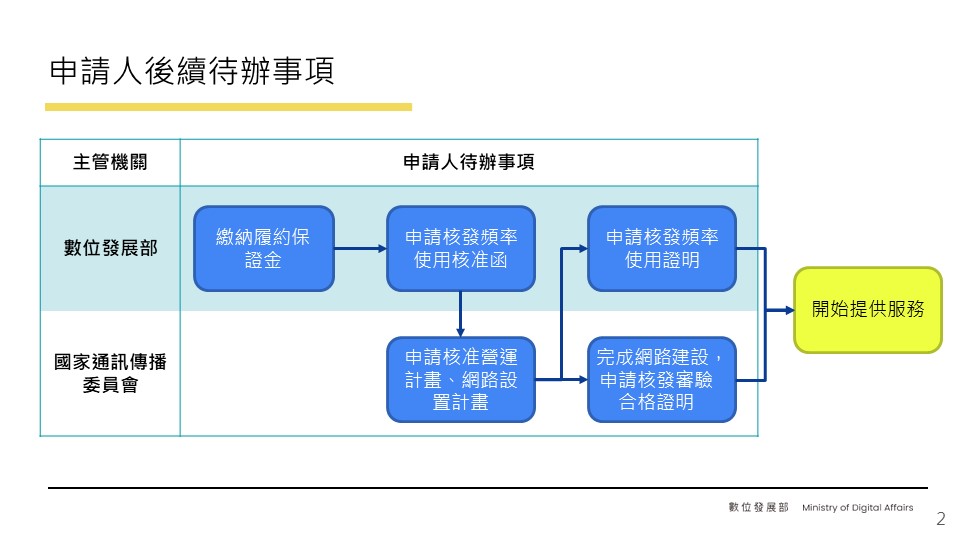Ministry of Digital Affairs: The first wave of commercial satellite communications frequency applications for Lung Hwa and Aerkomm passed the examination
The Ministry of Digital Affairs today (27th) announced the results of the first wave of open telecommunications operators to apply for commercial satellite communication frequency, including Lung Hwa Electronics Co., Ltd. and Aerkomm Taiwan Inc.
According to the application documents of the two operators, Lung Hwa has built its own global coverage satellite platform and plans to use Eutelsat synchronous orbital satellite to provide broadband communication services for fishing vessels and merchant ships; Aerkomm is the Taiwan subsidiary of AERKOMM INC. USA and plans to use O3b medium orbital satellite, target markets include ships, aircraft and fixed locations on land.
The moda, in conjunction with the National Communications Commission (NCC), established the "Radio Frequency Review Committee for Satellite Fixed Communications", inviting experts and scholars in the fields of communications, finance and information security to participate, and requesting professional advice from the Financial Supervisory Commission and the Investment Review Committee of the Ministry of Economic Affairs to complete the review of the two companies' application qualifications, network setup and operation concepts. Subsequent operators are required to pay a performance bond and submit a letter of approval for frequency use issued by the moda, and apply to the NCC for approval of their operation plans and network setup plans.
In addition to the two companies that have already passed the examination, the moda said that TAS Satellite Communications Co., which submitted in the second wave of applications in March, is also undergoing review operations simultaneously, and it is expected that it will be completed in the second quarter of this year at the earliest.
The Ministry added that applications for commercial satellite communication frequencies are opened in March and September each year, and it is expected that more operators will be active in submitting applications to provide domestic consumers with diversified applications for business, entertainment, and emergency services, and to expand the coverage of signals in remote areas such as mountainous areas, the sea, and outlying islands, in order to strengthen public network backup and build up the digital resilience of Taiwan's communication network.

